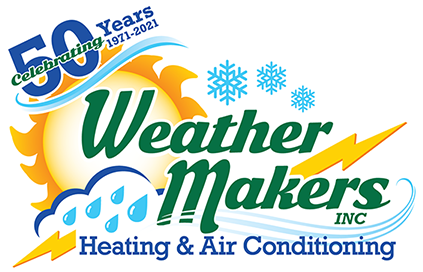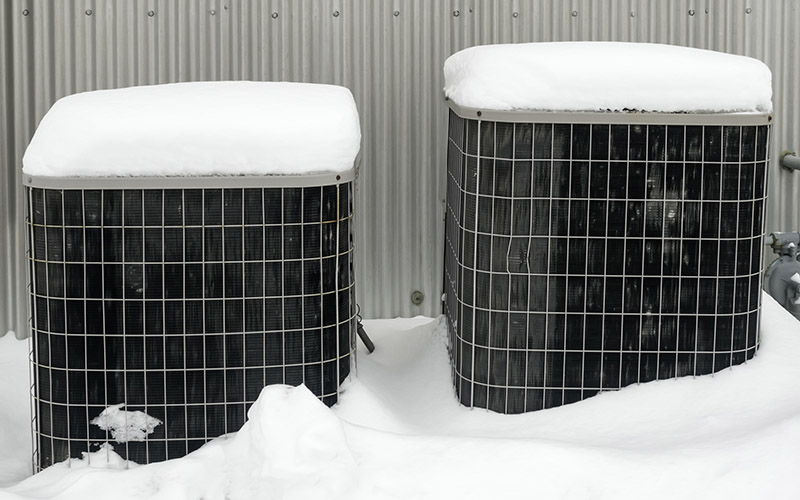When wintertime temperatures plummet, it’s normal to see snow on your heat pump. While small amounts of snow aren’t dangerous to your heat pump, the accumulation of ice and snow has the potential to create several problems.
Condenser Damage
The condenser is especially vulnerable to ice appearing on it during the winter. This is because condensation always appears on the condenser and is prone to freezing in especially cold weather. If condensation on the coil fins freezes, it’ll expand when it turns to ice and can damage the condenser.
It’s especially important to keep this from happening because any damage to your condenser could stop your heat pump from working. Therefore, keep at least three feet of clearance between your heat pump parts and the snow outside.
Fans and Airflow
If any thick packs of snow end up in the blades of your heat pump’s fans, they may slow them down or stop them entirely. This is even more common when ice builds up on your fan blades. If you find snow sitting on the blades of your heat pump’s fan, schedule a repair or maintenance service to remove it carefully and safely.
Effects on Refrigerant
Refrigerant is normally at least a few degrees colder than ambient air. But on especially cold days, the weather may actually affect the temperature and pressure of the refrigerant. If it gets too cold, its pressure will drop, and it won’t be able to condense properly.
Extreme cold can even damage or crack refrigerant lines, causing a leak. If this happens, you should call to schedule heat pump maintenance or repairs immediately.
Our expert team of HVAC service technicians knows how to fix a heat pump and keep it working well this winter. Call Weather Makers, Inc. to find out about more about the extensive HVAC services we offer in Currituck, VA.
Image provided by iStock

